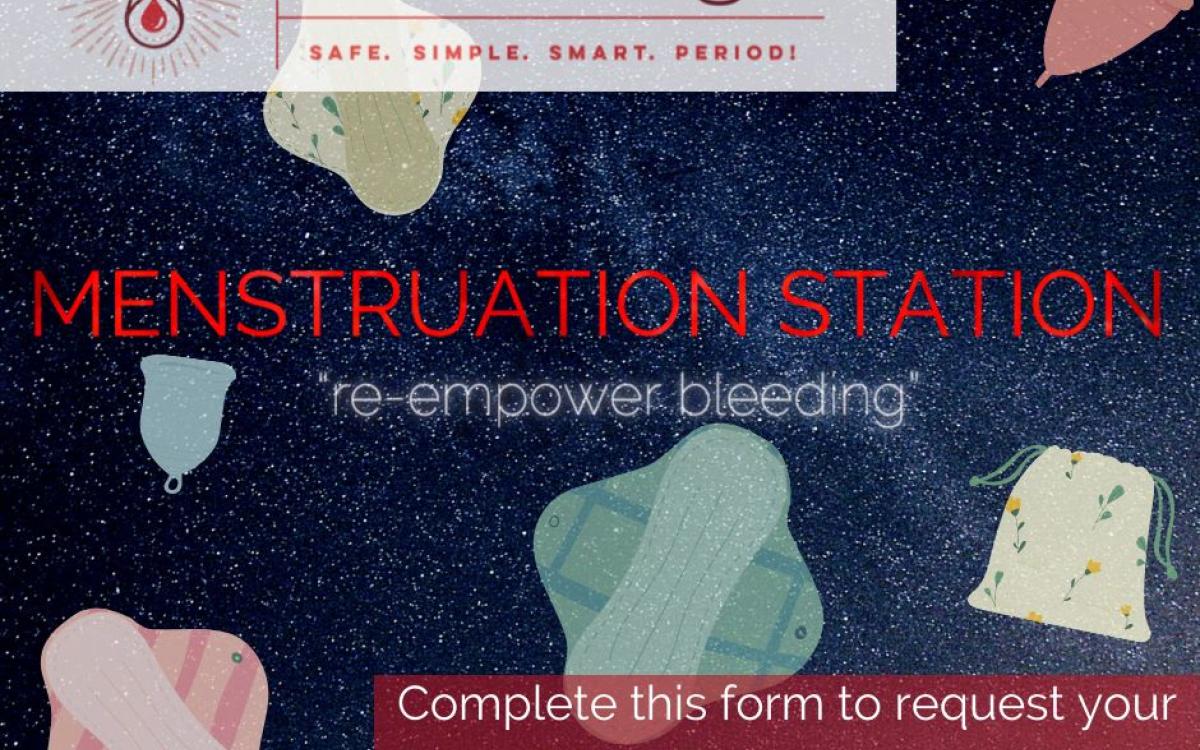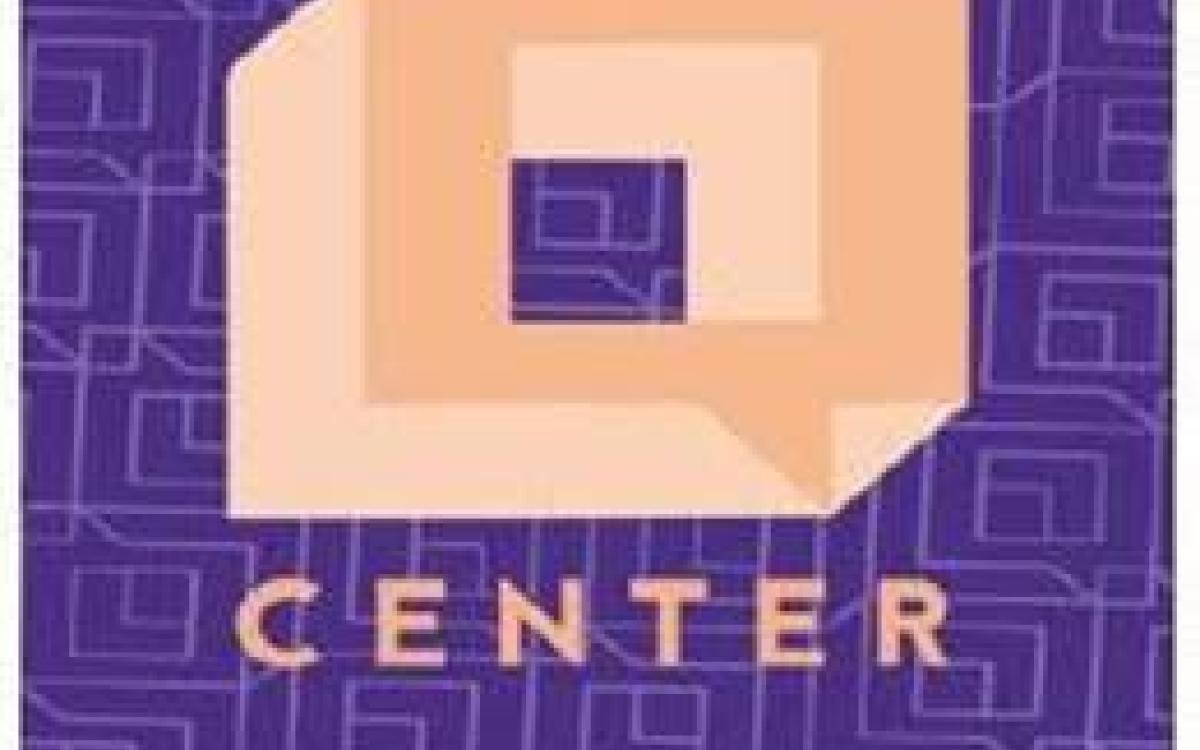At a glance
In pursuit of menstrual justice, the University of Washington Q Center will purchase and distribute sustainable, eco-friendly… Read full summary
- Funding received
- 2020-2021
- Mini
- Awarded
- $1,000
- Funding partners
-
- Services and Activities Fee (SAF)
In pursuit of menstrual justice, the University of Washington Q Center will purchase and distribute sustainable, eco-friendly menstrual products to 100 UW students in need. The products—reusable cotton underwear liners, reusable cotton pads, and menstrual cups—will be purchased from GladRags as part of the Q Center’s upcoming initiative called Menstruation Station. Led by Graduate Program Coordinator Joie Waxler, the Menstruation Station will provide wraparound services that center the experiences, needs, and desires of bodies that bleed. The initiative aims to undo and mitigate the structures of oppression that impact menstruating bodies with a focus on the needs of queer and trans folks who are often left out of menstruation discourse and care. Distributing free, sustainable menstrual products will re-empower bleeding and alleviate the financial, emotional, and environmental burdens experienced by people who menstruate.
The University of Washington Q Center is requesting $1,000 from the Campus Sustainability Fund Mini-Grant to purchase and distribute sustainable, eco-friendly menstrual products to 100 UW students in need. The products—reusable cotton panty liners, reusable cotton pads, and menstrual cups—will be purchased from GladRags as part of the Q Center’s upcoming initiative called Menstruation Station. The Menstruation Station program, led by Graduate Program Coordinator Joie Waxler, will advance menstrual justice by providing wraparound services that center the experiences, needs, and desires of bodies that bleed. The Q Center’s Menstruation Station program aims to undo and mitigate the structures of oppression that impact menstruating bodies with a focus on the needs of queer and trans folks who are often left out of menstruation discourse and care. Our goal is to re-empower bleeding and alleviate the financial and emotional burdens experienced by people who menstruate, particularly during the Covid-19 pandemic. Purchasing and distributing free of cost sustainable menstrual products for UW students will meet this need and fulfill important program goals.
Menstruation is a nearly ubiquitous experience for people who have uteruses, but it is often not discussed or tended to in the ways people with uteruses may need in order to thrive alongside this bodily process. Everybody experiences the menstrual cycle differently, but menstruation and ovulation can often be painful, fatiguing, emotional, and expensive. Over the course of their life, a person who menstruates will have around 456 periods and will spend upwards of $18,000 on menstrual care. That is an enormous amount of money. And the issue is not just financial, it is also deeply environmental. Each year, menstrual products account for 200,000 tons of plastic, and most menstruators will generate anywhere from 250-300 pounds of plastic waste over the course of their lifetimes. Covid-19 has wreaked financial havoc across the globe this year, and even in non-pandemic times, the impacts of White Supremacy, colonialism, and hetero-patriarchy disproportionately impact menstruators. Menstrual wellbeing remains under-funded and menstrual stigma continues to create hostile environments for bodies that bleed. Providing free and environmentally-friendly menstrual products to menstruators is an important step towards eradicating the economic and environmental burdens of menstrual care.
The Q Center is partnering with GalPalz, Hall Health, LiveWell, the Counseling Center, and the UW Food Pantry to ensure our menstrual health initiatives reach a diverse swath of the UW community. The UW Food Pantry will be supplying disposable menstrual products to anyone whose access needs require disposable products, allowing the Q Center’s Menstruation Station to focus our efforts on sustainable menstrual products and wellbeing. Additionally, these campus partners already helped facilitate outreach for an early needs survey put out by the Q Center to gauge the specific menstrual product needs for folks who menstruate, as well as the best methods of getting sustainable menstrual products to participants. Follow-up surveys and future promotion through the Q Center and our partners will expand the initiative’s contact with the UW community. All promotional material will be explicit in its subversion of menstrual stigma, homophobia, and transphobia.
Joie Waxler will oversee the Menstruation Station program as well as the distribution of any products purchased with this grant. They are a professional sexual health educator, and have been published on both national and local stages speaking to building effective means of providing affirming and accessible health care to queer and trans individuals and communities. They have successfully built the first menstrual equity and access program for the Ryan Health Network, a major Federally Qualified Health Center in New York City, as well as one of the first pregnancy and parenting programs that centers queer and trans homeless youth in NYC. Their experiences building sexual health equity programs that center the experiences, identities, and voices of communities that are often overlooked in this field will be put to good use in building this new initiative for the Q Center.
The Menstruation Station initiative is in part inspired by, and deeply aligned with the Q Center’s mission to engender a brave, affirming, liberatory, and celebratory environment for UW community members of all sexual and gender orientations, identities, and expressions. We approach our work with intentional interpersonal processes that strive to create holistic, culturally embedded, and appropriate services. Menstrual health and equity is imperative to maintaining emotional and physical wellbeing, and the funds from this grant will help the Q Center engender equitable, sustainable, menstrual wellbeing for all bodies that bleed. Thank you for your consideration, and for the sustainable community you are helping to build with this funding. Please reach out to Joie Waxler at jwaxler@uw.edu or budget administrator Lindsey Mitchell at lchale@uw.edu with any questions regarding this application.
Sincerely,
Joie Waxler
Graduate Program Coordinator
Q Center, University of Washington They, them, theirs
jwaxler@uw.edu
Follow the Q Center on Instagram (@uwqcenter) or visit our website (https://sites.uw.edu/qcenter) to stay up to date on Menstruation Station programming and to submit a request for free menstrual products. Follow us @uwqcenter, and fill out the menstrual product request form at tinyurl.com/menstruationfrustration
Joie Waxler
Project lead
- jwaxler@uw.edu
- Affiliation
- Student
Livie Jacobs
Team member
- oj22@uw.edu
- Affiliation
- Student

